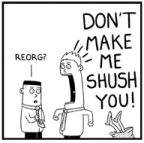2006.10.25
A lot of geeks my age were first introduced to the term from the old NES game "Ninja Gaiden"... though I'm not sure what the main story is supposed to have been in that case.
Sometimes I think my story is a bit of a Gaiden for someone else's bigger story, but I'm not sure whom. And I guess this isn't a new feeling, I jsut tracked down this loveblender essay from 1997 about "Henry and June" and "Backbeat"...
What struck me about both films was the accomplishments of the 'supporting characters'. Both works end with texts going over the lives of the people portrayed. Anais' husband Hugo, portrayed as a loving but stifled banker, was an experimental film maker whose films are in the collection of the Museum of Modern Art in NYC. Klaus Voormann, who loses his 'soulsibling' Astrid to the loose-cannon artistry of Stuart Sutcliffe, went on to create the cover to The Beatles' Revolver album (OK, not my favorite piece of album art, but still...) and played Bass in Lennon's Plastic Ono Band. To me, these ending texts are really the saga of the other men, the ones whose loves might've been the ones immortalized in film decades after the fact, if only fate had been different.Of course, the most annoying thing is...I haven't even had an interesting enough life to sustain a Wikipedia entry. (In fact, my one appearance in one, a description and link to JoustPong in the entry for Joust keeps getting removed, "Wikipedia is not a collection of links" blah blah blah) much less answer Jim Morrison raising the bar to "enough to base a movie on."
Feelgood Story of the Moment
Wow, I had no idea that Scott "Dilbert" Adams had lost his voice, but the story of how he got it back sounds like a miracle. The condition, "Spasmodic Dysphonia", sounds really crazy, like the brain just breaks in this subtle and strange way:
The weirdest part of this phenomenon is that speech is processed in different parts of the brain depending on the context. So people with this problem can often sing but they can't talk. In my case I could do my normal professional speaking to large crowds but I could barely whisper and grunt off stage. [...] So at least until the fall speaking season ended, I chose to maximize my onstage voice at the expense of being able to speak in person.I don't think it quite worked this way, but for some reason I had this image of him using his "onstage voice" while talking to people in casual settings, turning him into his own "LOUD HOWARD" Dilbert Character:

